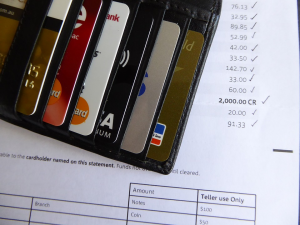 Credit is often a necessary financial tool. It can make buying a car, going to college, or taking care of an emergency possible. Credit also enables us to build long-term financial security when we use it to purchase something like a house. Using credit wisely can be a helpful financial tool and a valuable resource. Using credit foolishly can lead to future financial challenges.
Credit is often a necessary financial tool. It can make buying a car, going to college, or taking care of an emergency possible. Credit also enables us to build long-term financial security when we use it to purchase something like a house. Using credit wisely can be a helpful financial tool and a valuable resource. Using credit foolishly can lead to future financial challenges.
What is credit?
Credit allows you to buy goods and services before you have the full payment amount. Credit cards, car loans, student loans, and home mortgages are all examples of credit. Lenders, financial institutions, and other service providers grant credit because they trust that you can pay back what you borrow, in addition to finance charges or interest.
Why would you use credit?
- To buy something you need when you can’t afford the full price. For instance, you need a car to get to work, and you don’t have $25,000 in savings.
- In order to build your credit history or credit score and demonstrate that you can manage a larger credit amount like a home loan.
- To pay for an education with a student loan. The loan may cost $10,000 in interest, but you will earn much more in future salary.
Why wouldn’t you use credit?
 Using credit to make purchases comes with interest and fees. For example, when purchasing a car with a loan, you pay back the price of the car, plus interest and fees.
Using credit to make purchases comes with interest and fees. For example, when purchasing a car with a loan, you pay back the price of the car, plus interest and fees. - Unknown future events could prevent you from making payments on your debt. This will hurt your credit score and could add late payment fees.
- It is easy to overspend with credit.
Where can I get credit?
There are many options including banks, credit unions, payday lenders, family members, and the government. Some places specialize in one kind of credit like government student loans. Banks and credit unions offer many kinds of loans, whereas your uncle may only want to loan you a small amount.
It’s important to understand the cost of credit from different sources. For example, Payday lenders often charge very high interest rates. While using a credit card and paying the full amount each month can mean there is no interest. But if you can’t pay the full balance, the interest expense could be high. Whereas family loans may come with high emotional costs.
 Can I get credit?
Can I get credit?
A lender looks at the following to decide whether to loan you money:
- Income: Earning enough money to repay the loan.
- Credit Score: History of successfully paying bills on time.
- Collateral: Something of value, like a car, the lender can sell to pay off the loan.
- Loan to Value: Borrowing a small portion of the value of an item.
What should I do once I have credit?
- Pay on time. This improves your credit score and makes a lender more likely lend to you again.
- Use less than your credit limit on credit cards. Using only 25-30% of your approved limit helps raise your credit score.
- Pay more than the minimum payment. This action minimizes your interest costs and gets you out of debt sooner.
- Look for smart credit options. A free line-of-credit on a checking account or a low interest credit card can improve your credit history.
- Watch for the best rates on loans. If you are going to use credit, get the best interest rate possible.
- Have a plan to pay off debt.
Credit is a tool
Credit isn’t good or bad, it’s a financial tool. It can be right in some situations, and wrong in others. Like any tool, you want to use it wisely as you build your financial future.
A special thank you to Coauthor, Nancy Patton, Community Involvement Specialist at Canvas Credit Union. She is a Certified Credit Union Financial Counselor and Credit Union Development Educator.
 Check out https://www.facebook.com/moneysmartcolorado for Colorado State University Extension Agents bringing financial education, programs and discussions to Coloradoans everywhere. For more information on personal finances check out Colorado State University Extension’s publications at https://extension.colostate.edu/topic-areas/family-home-consumer/.
Check out https://www.facebook.com/moneysmartcolorado for Colorado State University Extension Agents bringing financial education, programs and discussions to Coloradoans everywhere. For more information on personal finances check out Colorado State University Extension’s publications at https://extension.colostate.edu/topic-areas/family-home-consumer/.


It’s so important to remember credit is a tool to use wisely for our financial goals; and not let it become a “master” of our finances!